Why interior modern wardrobe design matters
A wardrobe is more than a place to hang clothes. It shapes how your bedroom feels. A good interior modern wardrobe design makes mornings easier. It keeps the room tidy. And yes, it can make a small space look larger. This article gives 15 practical design ideas, plus tips on materials, lighting, storage, budget, and small-room tricks. Read on and pick what fits your life.
Why choose a modern wardrobe design?
Modern wardrobes focus on clean lines, smart function, and calm looks. They remove clutter and emphasise form that follows function. You get storage that actually works. And when you match style and purpose, your bedroom feels calmer. Who doesn’t want that?
How to pick the right wardrobe type for your room
Picking a type depends on space, budget, and habits. Measure first. Think about doors, access, and how much hanging vs folded storage you need.
Sliding door wardrobes
Sliding doors save floor space. They work well in narrow rooms. Use mirrored sliding doors to bounce light. That instantly makes the room look bigger.
Hinged door wardrobes
Hinged doors give full access to the interior at once. They suit larger rooms where door swing isn’t an issue. Hinged doors allow classic looks and easy customisation.
Walk-in wardrobes
If you have the room, a walk-in is a game of comfort. It’s a mini-room for clothes. Add seating, a mirror, and good lighting. It becomes a small dressing sanctuary.
Freestanding wardrobes
These work for renters and flexible spaces. They’re easy to move and often cheaper. Pick a sturdy model, though; you want something that lasts.
Modular and built-in wardrobes
Modular units are flexible. Built-ins are permanent but can be tailored perfectly to the room. Both let you optimise every inch.
15 interior modern wardrobe design ideas
Here are the ideas. Each one is practical. Each one aims to look clean and modern.
1. Minimalist built-in wardrobe
Keep flat panels and hidden handles. Use neutral colours like warm white or soft grey. Minimalism reduces visual clutter. It also makes cleaning simpler.
2. Floor-to-ceiling storage
Use the full height of the room. Upper cabinets hide seasonal items. A ladder or step stool helps. This design gives tons of storage without eating floor area.
3. Mirror-front wardrobe
Mirrors reflect light and enlarge visual space. Use a full-length mirror panel or a mirrored door. This is ideal for small bedrooms.
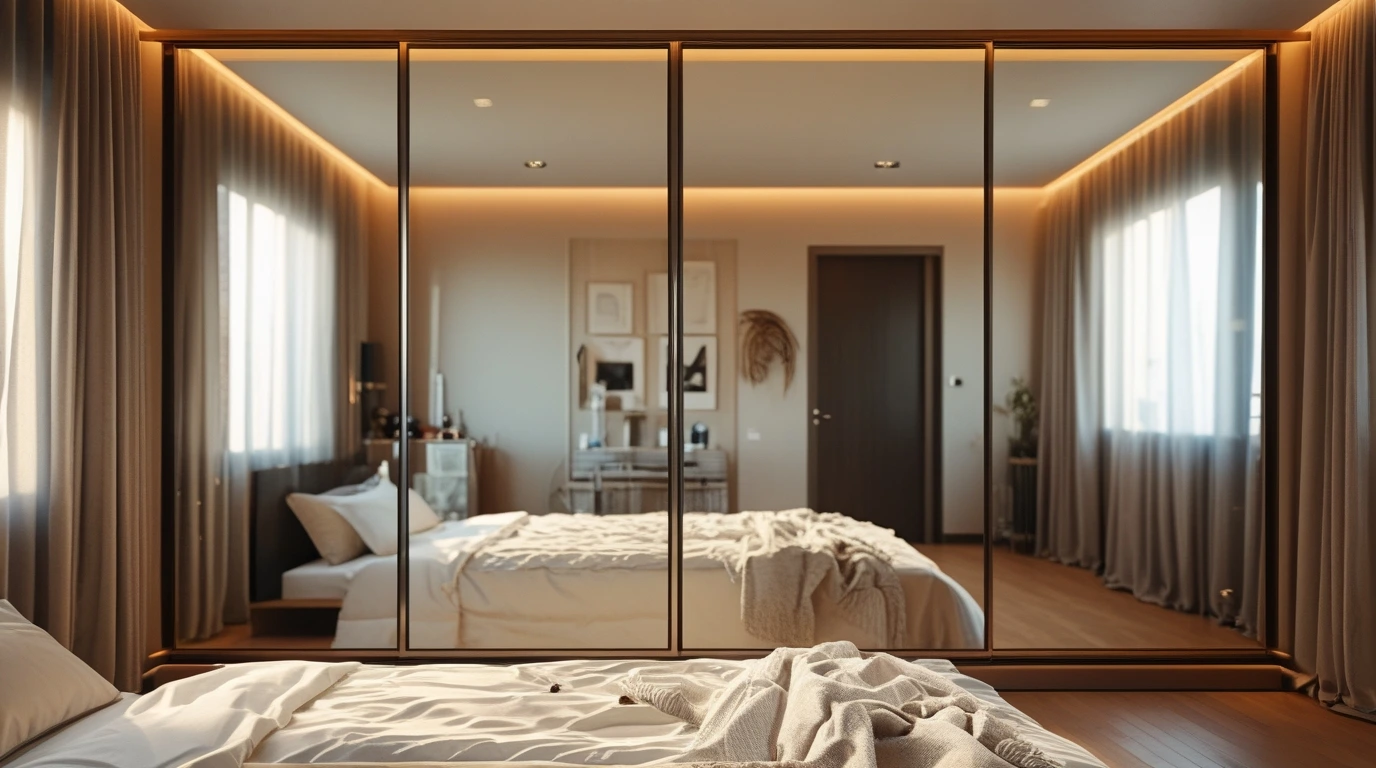
4. Two-tone wardrobe finishes
Pair wood grain with matte paint. Or combine a warm oak base with a cool grey top. Two tones add depth while keeping a modern palette.
5. Matte black wardrobe for contrast
Matte black doors feel bold but refined. Use them against light walls. Black grabs attention and reads modern when kept simple.
6. Frosted glass and metal frames
Frosted glass softens the look. Metal frames add an industrial modern touch. Use this combo for a light, airy feel that still hides clutter.
7. Open wardrobe (clothes as decor)
Open wardrobes show off curated clothes. Use for capsule wardrobes or when you want easy access. Keep it tidy — open systems need order to look good.
8. Walk-in with a centre island
A small island adds storage and a surface for folding. Include drawers and a soft-close top. It feels like a boutique.
9. Integrated LED lighting
LED strips inside shelves and under hanging rails improve visibility. Use warm white for a cosy feel. Motion sensors add convenience.
10. Hidden wardrobe doors (seamless walls)
Make the wardrobe blend into the wall. Use matching paint and hidden hinges. It’s subtle and modern — like furniture that disappears.
11. Sliding panels with mixed materials
Combine wood, metal, and glass panels on sliding doors. It adds texture and interest while keeping the silhouette simple.
12. Louvred panels for texture
Louvred doors add subtle pattern and ventilation. They fit modern tropical and Scandinavian styles. Use a neutral paint to stay modern.
13. Built-in dressing nook
Create a small recessed space with a mirror and lights. Add a slim drawer or floating shelf for jewellery and essentials. It’s a compact glam spot.
14. Modular open cubes
Use cube modules for bags, shoes, and folded items. They’re flexible and easy to rearrange. Paint or finish separate cubes for pops of colour.
15. Smart wardrobe features
Add humidity control for delicate fabrics. Include valet hooks and pull-out ironing boards. Smart labels or LED indicators can tell you which drawer holds what. Keep tech subtle and practical.
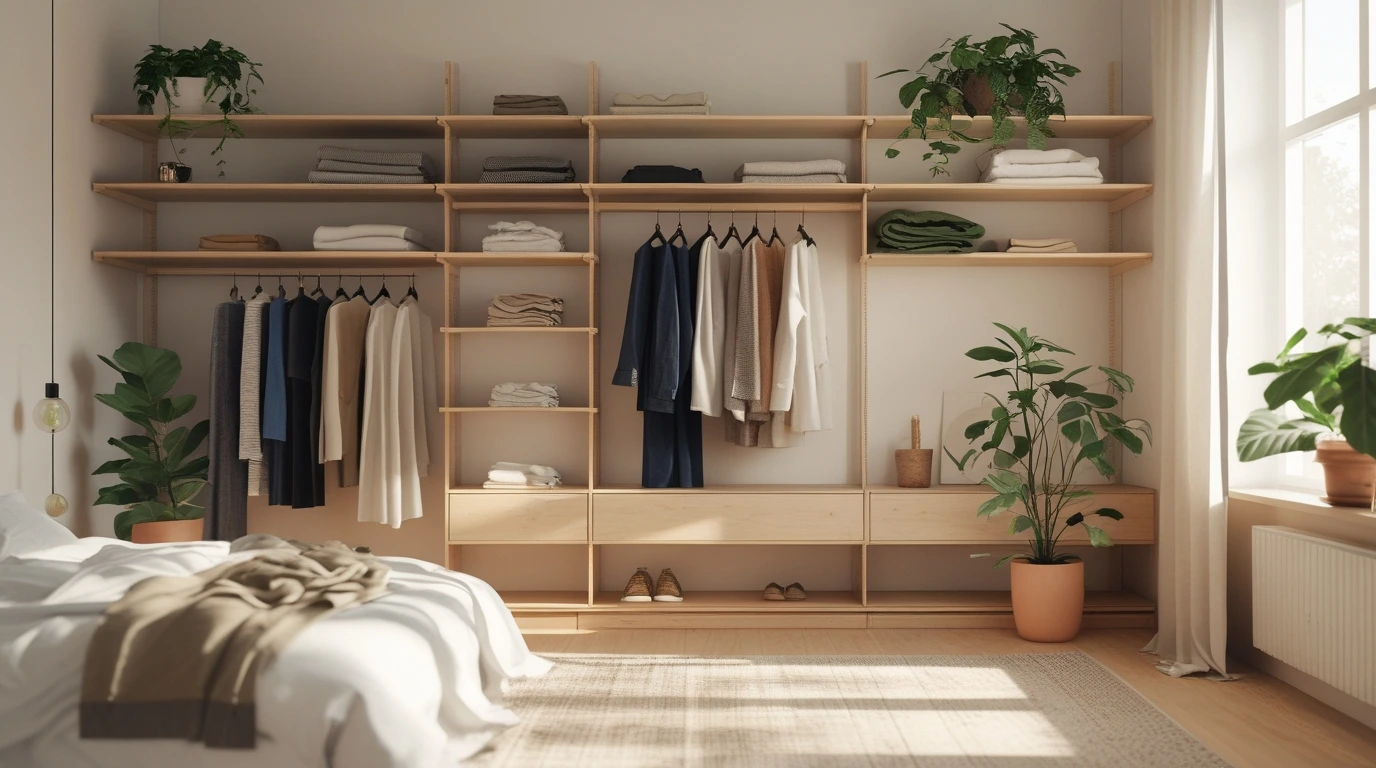
Materials and finishes that work for modern wardrobes
Materials set the tone. Choose them based on look, budget, and durability.
Wood and wood veneer
Wood feels warm. Veneers give a natural look at a lower cost. Choose real wood where you want long life and character.
Laminates and melamine
These are budget-friendly and durable. Many modern finishes now mimic real wood grain well.
Lacquer and high-gloss
Glossy finishes reflect light and feel contemporary. Use them sparingly — too much gloss can feel cold.
Glass and frosted panels
Glass makes a wardrobe look lighter. Frosted glass hides contents while keeping brightness.
Metal accents
Aluminium or steel frames add a modern industrial edge. Use metal only as trim for a balanced look.
Eco-friendly options
Bamboo and recycled wood reduce environmental impact. Low-VOC finishes help indoor air quality.
Organise inside: storage solutions that actually work
Storage must match your habits. Do you need more hanging space or drawers? Plan for both.
Adjustable shelving
Adjustable shelves adapt to changing needs. Use them for sweaters, boxes, and folded items.
Soft-close drawers and deep drawers
Soft-close prevents slamming. Deep drawers store bulky items like jeans and bedding.
Pull-out shoe racks
Keep shoes visible and off the floor. Pull-out racks save space and prevent clutter.
Accessory organizers
Use divided trays for jewellery and small items. Tie racks and belt hooks keep things tidy.
Valet rods and pull-down rails
Valet rods are great for outfit planning. Pull-down rails let you use high hanging space easily.
Lighting — small detail, big impact
Good lighting changes how you use the wardrobe.
LED strips under shelves
They improve visibility and look clean. Use warm tones to flatter fabrics.
Motion sensors and timers
These are practical. The lights come on when the door opens and go off when you close it.
Backlit mirrors
Backlit mirrors give soft, even light for dressing. They also add a modern flair.
Colour palettes and finishes that read modern
Modern colour is often simple and calm. Think neutrals with an accent.
Warm neutrals
Beiges and warm whites feel cosy. They suit wood finishes well.
Cool greys and charcoals
Grey tones read contemporary and pair well with metal.
Soft pastels as accents
Soft blues or greens can be used in niche areas to add personality without overwhelming.
Natural wood tones
Keep wood grain visible for warmth. Pair with matte paint for contrast.
Budget planning: where to save and where to invest
Decide early what matters most: doors, internal fittings, or finishes.
- Save on: ready-made modular units, laminate finishes, and simple hardware.
- Invest in: quality runners, soft-close systems, and custom internal fittings.
- Mid-range trick: buy a solid carcass and change doors later for a refresh.
Maintenance and durability tips
A modern wardrobe should stay that way for years. Keep it simple.
- Clean surfaces with a damp cloth.
- Avoid harsh chemicals on lacquer and veneers.
- Check runners and hinges yearly.
- Use drawer liners to protect wood.
Tips for Interior Modern Wardrobe Design
Small rooms need clever tricks.
- Use mirrored doors or glass to reflect light.
- Choose sliding doors to save swing space.
- Use built-in units to the ceiling for maximum storage.
- Keep a consistent colour palette to reduce visual clutter.
Custom vs ready-made: when to choose each
Custom is perfect for odd layouts and exact needs. Ready-made saves money and time. Modular systems sit between both: flexible and more affordable than full custom.
How to plan your wardrobe layout step by step
- Measure the wall and ceiling height.
- List items you own (long coats, suits, shoes).
- Decide door type and finish.
- Plan internal divisions: hanging length, drawer depth, shelf spacing.
- Add lighting and accessories last.
- Keep a 10% margin for changes.
Common mistakes and how to avoid them
- Buying the wrong depth: standard depth is 60 cm (24 in); measure your hangers.
- Forgetting lighting: dark interiors are hard to use.
- Too many small drawers: you need to balance with hanging space.
- Ignoring door swing: check clearance before buying hinged doors.
Quick checklist before you buy
- Measure twice, order once.
- Count hanging vs folded items.
- Check warranty and materials.
- Decide hinge and runner quality.
- Plan for future needs.
A good interior modern wardrobe design combines a calm look and useful storage. Pick a design that matches your space and habits. Use smart lighting, the right materials, and practical internal fittings. Whether you go minimalist, bold, or tech-savvy, plan first. Measure carefully. Keep the finish simple. The result will be a bedroom that looks tidy and feels easier to live in.
FAQs
Q1: What is the best wardrobe door type for a small bedroom?
A: Sliding doors are usually best. They don’t need swing space and can include mirrors to make the room feel larger.
Q2: Are mirrored wardrobes a good idea for modern design?
A: Yes. Mirrors add light and depth. Just keep frames simple for a modern look.
Q3: How high should wardrobe shelves be?
A: Use adjustable shelves. For folded clothes, 30–35 cm (12–14 in) is common. For sweaters, 25–30 cm (10–12 in) works well.
Q4: Can I add lighting to an existing wardrobe?
A: Yes. LED strips and battery motion lights are easy and safe. For a cleaner look, consider hardwired LEDs with a switch.
Q5: Is a modular wardrobe a good compromise between custom and ready-made?
A: Absolutely. Modular systems offer flexibility, usually lower cost than full custom, and better fit than fixed, ready-made units.

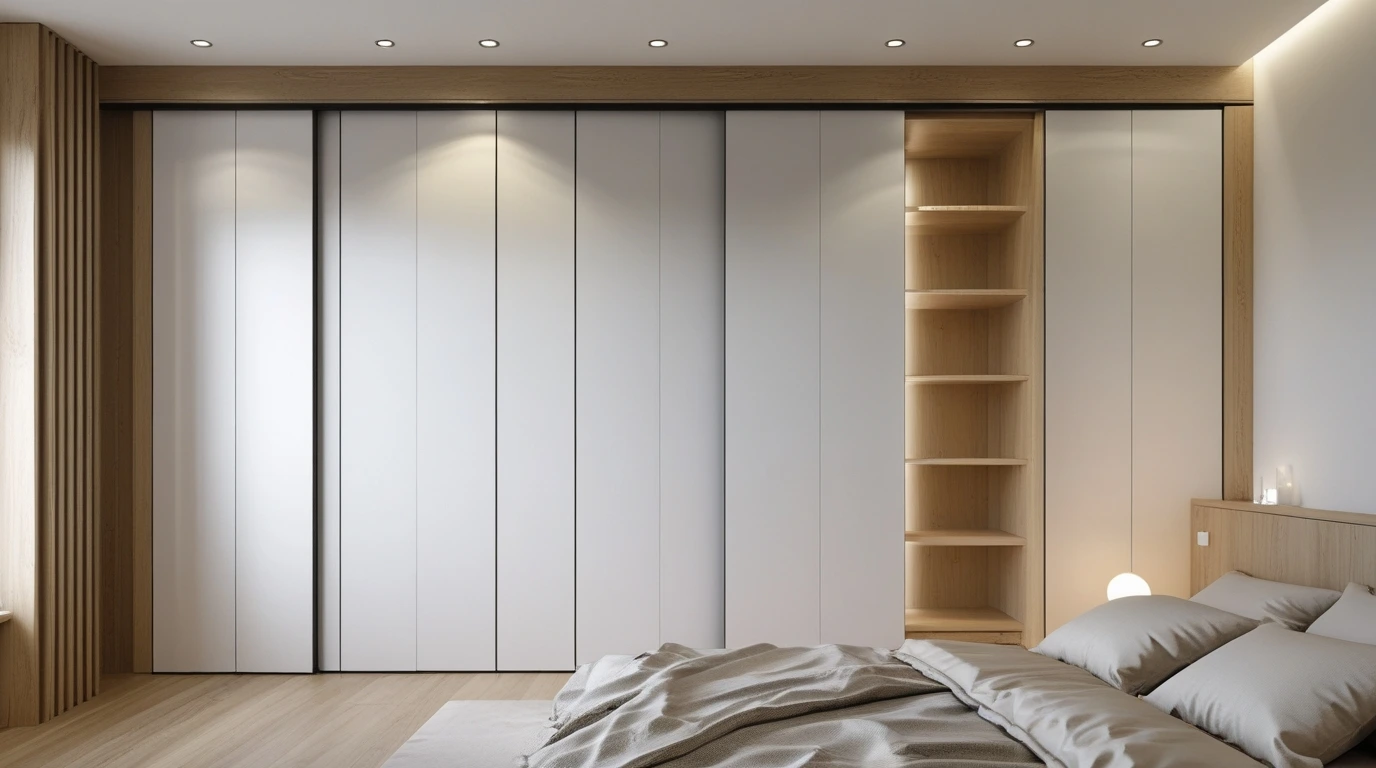
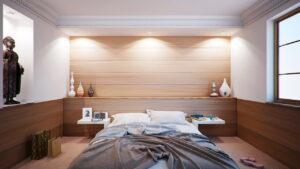
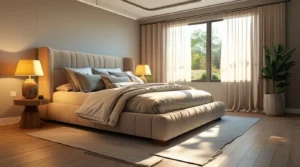
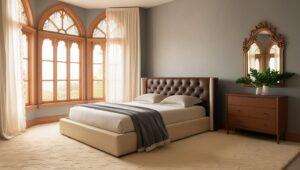
Discover your perfect shades with color palette analyzer and find your unique color palette.
Users can submit photos and receive expert analysis remotely, making it both accessible and efficient.